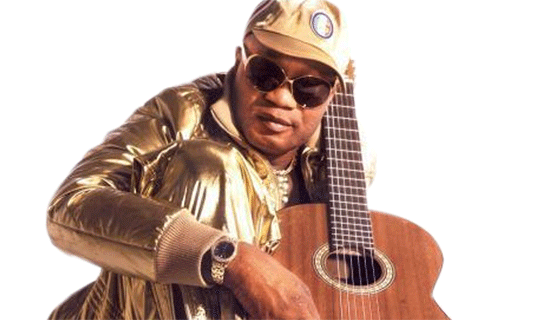HE KNOWS HIS TURF: The self-appointed Ghetto president Bobi Wine, holds his Kigwa Leero concert at his One Love Beach, in Busabaala tomorrow. But it follows a season when there has been debate about his currency in the music industry, with many reckoning that he has lost some of his star shine. Joseph Ssemutooke talked to the singer himself and a few industry players.
It would appear that most talk of Bobi Wine’s star having lost some of his shine largely owes to the fact that his music no longer dominates the local airwaves as it did yesteryears, and his name has not appeared on international awards nomination lists. Even that the ‘Big Three’ tag that was long applied to him alongside Chameleone and Bebe Cool is now history. But is he one to be written off?
‘It’s the music trends that have changed’
Bobi Wine is personally of the view that before anyone says he or any other of the historical ‘Big Three’ has lost it, they had better pause and realise it is the dynamics of the local music industry that have changed, with more musicians coming to the big stage to share it with the old guard. “The likes of Eddy Kenzo, and Radio and Weasel have come up over the years and joined Bobi Wine up there, but it isn’t Bobi Wine who has suddenly become a bad artiste,” Bobi says.
Interestingly, veteran music critic and events promoter Eddie Ssendikaddiwa, as well as KFM presenter and music selector Freddie Sakura, both independently give the same opinion.
“Several younger and equally talented musicians have come up and squeezed into the little space at the top of the industry. But that doesn’t mean the old guard have become any smaller or fallen off, instead now we have something like a Top Seven or Top Ten and not Top Three,” says Ssendikadiwa.
Reduced hits frequency
You must be familiar with the comments that over the last year or two have come from different sources reckoning that Bobi Wine is no longer consistently scoring monster hits as he previously used to. Ssendikadiwa entirely agrees, saying Bobi Wine has indeed slowed down on the rate at which he releases hit music. “There’s that song called Mazzi Mawanvu on which Bobi Wine himself listed about 10 hit songs he had released in a period of about four years, but now he would be hard-pressed to name five mega hits he has had over the last two years,” Ssendikadiwa says.
However, he is quick to caution that it would be unrealistic to write Bobi Wine off the list of elite musicians only because he no longer releases hits as frequently as he previously did. And Sweden-based Ugandan DJ Erycom Mayanja argues that when a musician builds a big body of hits over time as Bobi Wine has done, it is not really necessary for him to keep looking for a hit every day because the old body of work alone elevates them to a cemented position where they can even go years without making new hits and yet remain elite, courtesy of the old work.
Bobi Wine himself totally agrees he is no longer scoring big hits as consistently as he did previously, but says it is because over time, his priorities have changed.
“I still set out to do good music and have it hit, and I still score hits, but I can no longer concentrate on music alone as I used to. Now I’m a family man, a big businessman and a social worker. There is a lot that I have to divide my time for. In the music industry, I am also very much behind the scenes now, rather than only being in studio or marketing my songs all the time.”
Concentrating on a niche
Sakura says anyone thinking of writing Bobi Wine off the list of the country’s most elite artistes, had better pay heed to the fact that of all Ugandan musicians, it is him who has best cut out a distinct niche of fans and continued to keep that niche in his grasp over the years.
“There are many talented and gifted artistes who burst onto the scene for a short while but quickly fell back into oblivion and are now nowhere to be seen because they failed to cut out for themselves a loyal fanbase. So Bobi Wine, who has perhaps been the best at it among his contemporaries remains a big brand. He arguably has more assured fans for a show than any other artiste around, because for him it’s about a certain constituency of fans who will always be there for him.”
Veteran musician, music promoter and analyst Tshaka Mayanja is of the same opinion, saying Bobi Wine has been wise enough not to try and impress everyone but identify a niche market, dedicated his efforts to that market and kept himself relevant to it.
Bobi Wine says it has always been his strategy to concentrate on those who find him relevant and ignore those who don’t, and he posits that only a blind man can’t see that his fan-base among those who find him relevant has grown and is growing every year.
“My first show at Hotel Equatorial about a decade ago had just about 500 people. From there I moved to about 4,000 at Hotel Africa, then about 6,000 at Kyadondo, and now I get more than 20,000 at One Love Beach and I have set it with a capacity of 100,000 to cater for my ever-growing fanbase.”
‘International awards don’t tell the whole story’
As the likes of Chameleone, Bebe Cool, Eddy Kenzo and Radio and Weasel have enjoyed massive airplay on continental broadcasters like MTV Base over the last year or two, also getting nominated for and even garnering different international awards, Bobi Wine has not been able to ride the same luck outside the borders of Uganda.
This has got some circles saying Bobi Wine has been left behind by his colleagues who are now becoming totally international. But Tshaka Mayanja rhetorically questions whether getting nominated for or winning an international award should really be the benchmark for gauging the relevance and success of a local artiste.
Tshaka questions whether legends such as Sammy Kasule and Moses Matovu are minnows just because they have not won international awards. And Eddy Ssendikadiwa is even more dismissive of using awards and nominations (local or international) to gauge artistes, saying getting nominated for an award never really impacts on how much the local audience applauds or ignores one’s music.
Bobi Wine says much as he was the first Ugandan to get nominated for the MTV Mama Award seven years ago for his Every Thing collaboration with Kenyan songstress Wahu, he has never gauged himself by how much the international audience embraces him because he sings primarily for his local people.
“I’m the Ghetto president, I have the duty to communicate to my people and I judge myself on how much they pick my message and embrace me and my music, not how much foreigners recognise me,” he says.
Business and community work
Tshaka and Sakura both reckon that if anything keeps Bobi Wine a top brand as big as any other in Uganda’s music industry today, it is his financial savviness.
“I think there is sufficient reason to believe that he is among the artistes posting the best results as regards to bank balances,” Tshaka says. “The fact that while most artistes hire places for concerts, he has his own place and can hold a concert any day he wants to without worrying about booking fees, moreover with a guaranteed audience, that is unbeatable.”
Bobi Wine says those who judge his stardom on how much he makes news for scandal or showing off.
“I could afford to buy a new Shs400m car and go fighting to make news and be considered a star, but I’m past that. I’m concentrating on my businesses, caring for my family, and uplifting my people –both those close and other ghetto people. I’m into farming, building a secondary school for underprivileged talented children, being the best father and husband… a time is coming when I won’t even want to appear in any media and I truly won’t. But I will continue to live my life without want and impacting on people’s lives in so many ways. That’s Bobi Wine, I’m a mature man now and not a young boy.”
But because he is primarily known as a musician, we hope he keeps releasing good music lest Ugandans tag him the “faded musician” .


























































